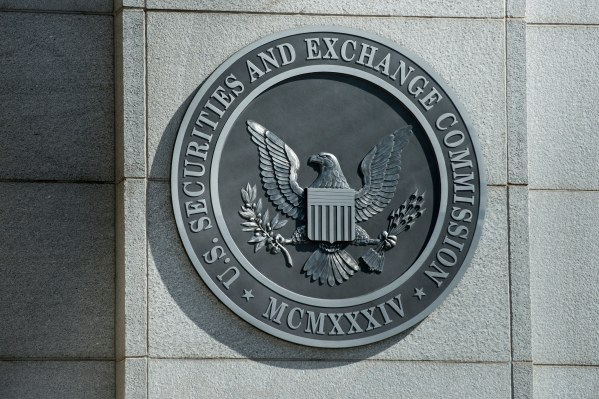
As the number of privately held companies continues to grow — and privately held companies stay private longer than ever — public market shareholders who’d earlier benefited from the growth of companies like Google and Amazon are missing out, fears the Securities & Exchange Commission.
Toward that end, the agency today proposed amendments to the definition of “accredited investor” and the definition of “qualified institutional buyer” that would expand the list of people and institutions currently capable of investing in the private capital markets — meaning startups, hedge funds, venture funds and private equity funds.
What would change? Right now, as the SEC defines accredited investors, a person has to have at least $1 million in liquid assets or earn more than $200,000 in annual income.
The SEC’s new proposal would open up the definition to also include individuals with an entry-level stockbroker’s license or other credentials issued by an accredited educational institution; “knowledgeable” employees of funds who might not currently meet the SEC’s wealth thresholds; family offices with at least $5 million in assets under management and their family clients; and “spousal equivalents” who could pool their assets for the purposes of qualifying as accredited investors.
The proposed amendments would also add limited liability companies and RBICs to the types of entities that are eligible for qualified institutional buyer status if they meet the $100 million in securities owned and investment threshold in the definition. And the SEC wants to add a new category for any entity, including Indian tribes, that owns “investments,” as defined in Rule 2a51-1(b) under the Investment Company Act, that are valued at more than $5 million and that weren’t formed for the specific purpose of investing in the securities offered.
The proposal is now open to a 60-day comment period. In the meantime, expect there to be strong arguments both for and against the SEC’s moves to expand the private investing pool.
On the one hand, parties focused on investor protection will surely argue that vulnerable investors will be taken advantage of by startups that already have access to more than enough capital — especially startups worth funding.
On the other, expect to hear from the growing number of voices concerned that mom and pop investors have been shut out of America’s innovation economy, and that income inequality is worsening quickly because of it.
In the meantime, if you’re curious to learn more, you can check out the SEC’s specific proposals here, as well as find instructions on where to submit a comment.



